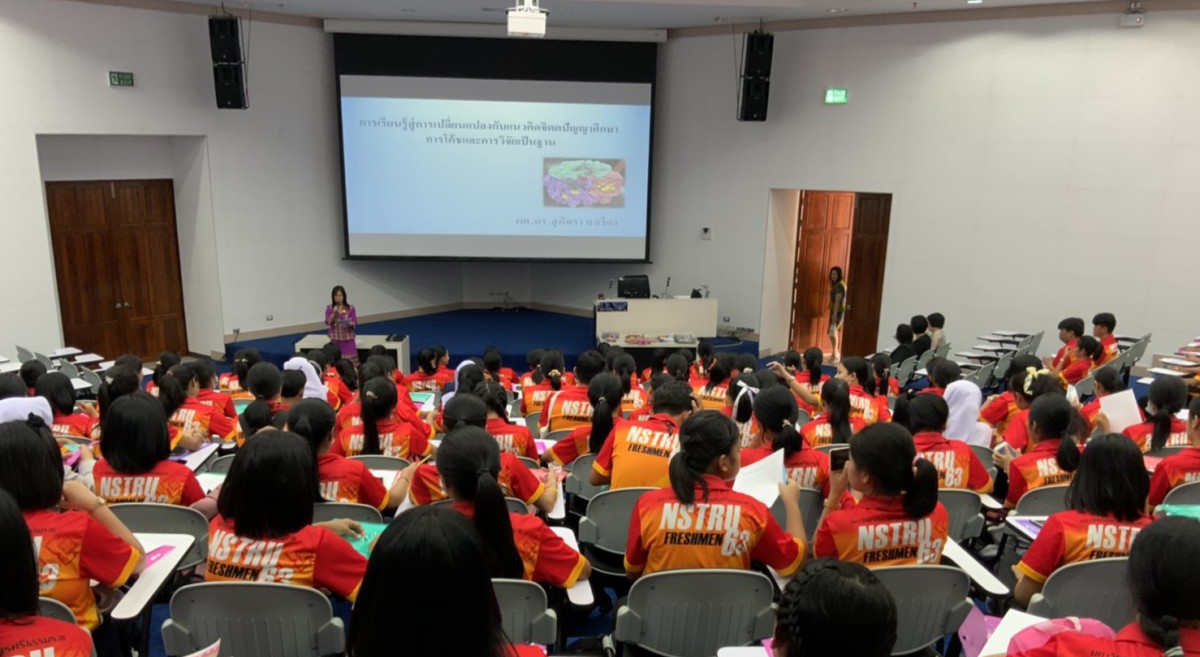Standard 3: Teaching & Learning, the university has implemented the policies outlined by the Council of Rajabhat University, Nakhon Si Thammarat Province, for the years 2021-2024. Key points related to teaching and learning include an urgent policy to “drive the improvement of existing curricula and develop new curricula to be contemporary and responsive to the country’s changes, promote cooperative education, and integrate education with work (Cooperative and Work Integrated Education: CWIE) for short-term non-degree programs, regular degree programs, and Credit Bank programs in offline, online, and distance learning formats.”
The image of the faculty conforms to the standards of the curriculum at the tertiary education level, as established in 2015. Academic work has been disseminated according to the criteria set forth, stimulating student learning through various mechanisms. Both external and internal environments have been conducive to learning. Faculty development includes knowledge, readiness, expertise, experience, contemporary teaching techniques, and engaging teaching formats. Graduates at both undergraduate and graduate levels will receive documentation for graduates who did not receive their degrees at the ceremony. This can be requested later through the diploma after the graduation ceremony.
The measurement and evaluation of learning outcomes are conducted appropriately according to the policies outlined in the educational attainment policy. Criteria for measurement and evaluation, as well as the minimum standards for each course, must comply with the standards of the undergraduate curriculum in 2015 and the graduate curriculum in 2015 set by the Ministry of Education. Plans for admitting students annually are detailed in the curriculum handbook (M.C.O. 2) for all disciplines at both undergraduate and graduate levels. The university develops an annual student admission plan for each academic year.
